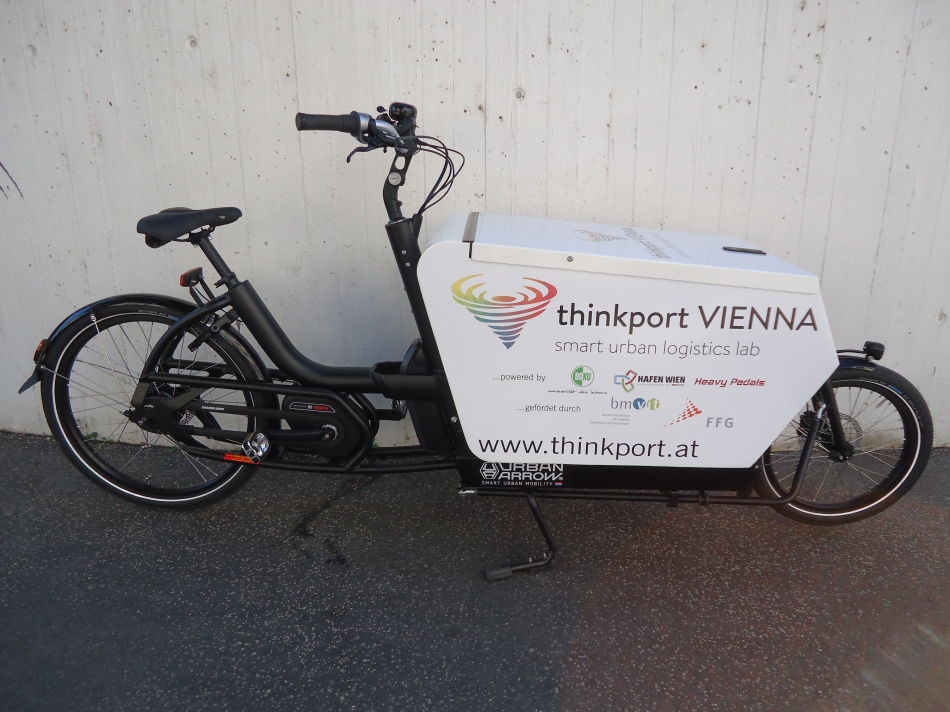At the opening of the thinkport VIENNA, I had the opportunity to drive and test electric cargo-bikes. Such bikes are not just fun to drive around, they are furthermore a promising alternative for last-mile distribution in urban city centers. With a focus on restaurant deliveries, a simulation and optimization-based decision support system was developed in recent work to facilitate sustainable city logistics. It considers urban consolidation points to transship goods as well as deliveries of cooked meals by cargo-bikes and cars.
The following problem setting was considered: A logistics provider performs the delivery of food products for multiple competing restaurant operators. All deliveries to customers are performed by cargo bikes within a guaranteed delivery duration, while motorized vehicles can be used to bring goods closer to the demand area. Therefore, multiple consolidations points are operated, where goods are transshipped from cars to cargo-bikes. Consequently, long trips from the periphery of the city are performed by cars, while the last-mile distribution in the city center is done by cargo-bikes, which are less impacted by traffic conditions and parking restrictions. The objective is to both reduce delays and minimize travel distance.
The developed decision support system enables one, among others, to investigate the impact of operating consolidation points as well as to study how the guaranteed delivery duration influences travel distances and delays. Therefore, various uncertainties are considered within the simulation such as random ordering patterns of customers, who are located throughout the city. Furthermore, as cargo-bikes are often operated by freelancers, their availability varies over time within the simulation framework.
Results highlight that for successful cargo-bike operations, guaranteeing a sufficient number of freelancers is of importance. Furthermore, operating consolidation points to enable the transhipment of goods allows one to substantially shorten delivery times. By the developement of a computer-aided decision support system, specific problem settings can be investigated and tested in a flexible and risk free manner. This enables one to design real-world implementation to facilitate sustainable and efficient last-mile distribution.
Consequently, driving cargo-bikes is not just a lot of fun, it can also help to improve urban food deliveries and create a wide range of business opportunities.
Reference:
– Fikar, C, Hirsch, P, Gronalt, M (2018) A decision support system to investigate dynamic last-mile distribution facilitating cargo-bikes. International Journal of Logistics Research and Applications 21 (3), 300-317. DOI: 10.1080/13675567.2017.1395830
Image: Heavy Pedals

Pingback: Ordering Food Online in a Sustainable Way – Decision Support for Time-Critical Logistics Operations